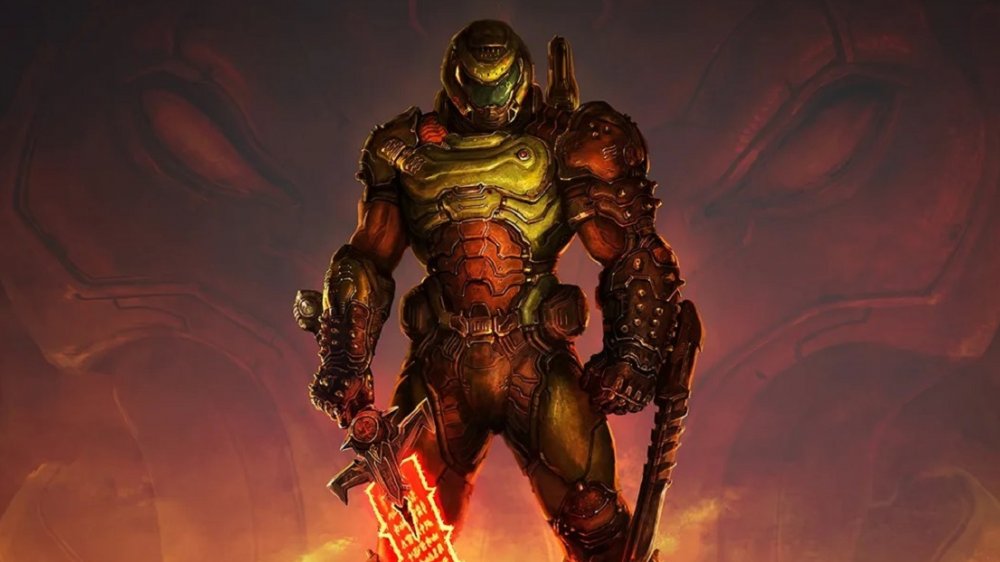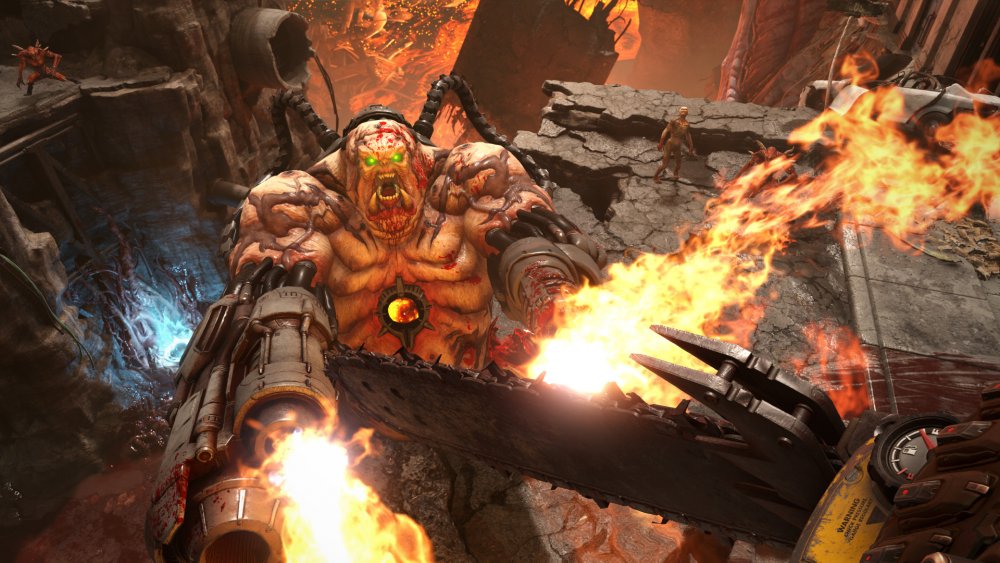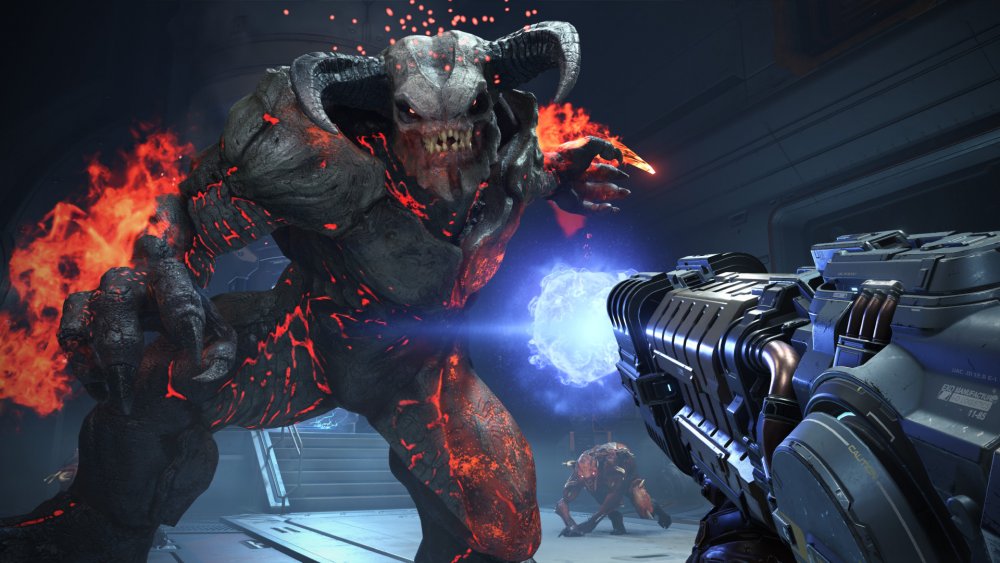What Does Microsoft's Purchase Mean For The Future Of Doom?
Bethesda's track record has been rather spotty lately. The newest entry in its Fallout series, Fallout 76, had a host of issues. Meanwhile, Wolfenstein experienced a well-received revival until Youngblood seemingly squandered the franchise's goodwill with numerous poorly designed gameplay mechanics. Doom is apparently the only legacy franchise that has flourished under Bethesda, but now Microsoft owns Doom, since Microsoft owns Bethesda.
While Doom's future on non-Microsoft platforms is a pressing concern, you might also wonder about the franchise's future as a Microsoft product. After all, Bethesda (and all its subsidiaries) is only the latest in a long line of studios to march under the Microsoft banner, and many of these companies brought pre-existing franchises that were grandfathered into the Xbox library. How did they fare under Microsoft? Let's examine what came before and create a potential — and speculative — roadmap for the Doom franchise.
Doom might enter an experimental spin-off phase
Usually, games published by Microsoft stick to their franchises' roots. Gears 5, for example, continued the cover-based third person shooting action that started in Gears of War, and Halo Infinite will stick to many of the FPS features it pioneered. However, some franchises have branched out under Microsoft in weird directions.
Halo is a prime example of a game that saw numerous spinoffs. Many gamers believe the series started as a first-person shooter, but it was originally developed as a real-time strategy game. That idea eventually came full circle thanks to Halo Wars and Halo Wars 2. Moreover, Halo saw two twin-stick shooters and one arcade on-rails shooter. Meanwhile, Gears of War had two tactical spin-off games, Gears Tactics and, confusingly enough, Gears POP!
What do these spin-offs have to do with Doom? Well, Halo and Gears are Microsoft's premiere shooter franchises, and now that Doom has been added to that exclusive list, Microsoft might see fit to develop Doom-themed strategy games and on-rail arcade shooters. Heck, if Microsoft greenlit a game based on Gears' exhaustive line of Funko Pop figures, maybe the company will approve a game based on Doom Eternal's in-game collectible figures that gamers seem to like.
Id might leave Doom behind
When it comes to acquiring game franchises, Microsoft has a questionable track record. Sure, it owns the rights to the properties, but these acquisitions sometimes come at the cost of the teams behind them. Halo and Gears of War are two of Microsoft's biggest games. However, many audiences forget these franchises started in vastly different hands. Originally, Halo and Gears were developed by Bungie and Epic Games, respectively. But somewhere down the line, Bungie and Epic Games cut ties with Microsoft to pursue new games. When Bungie and Epic left, 343 Industries and The Coalition picked up where those prior studios left off to develop the franchises in Microsoft's name.
In a related but not-as happy ending, Microsoft also owns the Fable franchise, even though the team behind it, Lionhead Studios, is dead and buried. The newest Fable title is in the hands of Playground Games, a studio primarily known for Forza Horizon.
Since Microsoft now owns the Doom IP, it is free to use the property as it sees fit. Best case scenario: id sticks with the series and keeps it a masterpiece. Worst case scenario: id leaves Microsoft to pursue new ventures (like Bungie and Epic) but gives the company Doom in the divorce — or id is dissolved like Lionhead, and Microsoft hands Doom to another studio.



